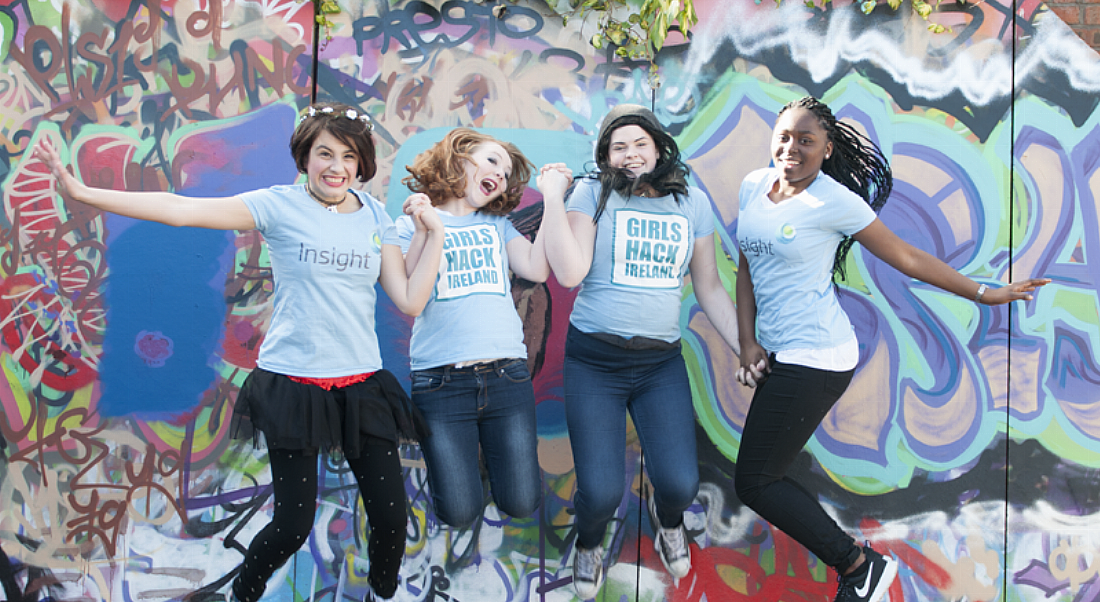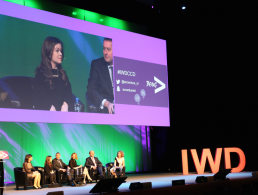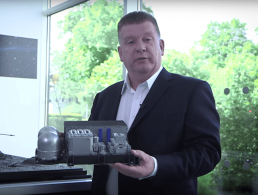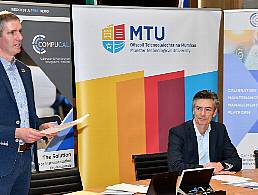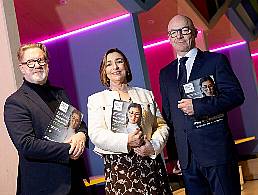Almost 100 teenage girls attended the Girls Hack Ireland hackathon, which taught novices and improvers the skills needed to manipulate web pages and build whole websites from scratch.
The event, which was held in Dublin City University (DCU) on Saturday, 21 March, is one of a series of activities devised by DCU’s Insight Centre for Data Analytics to get female students more involved in science, technology, engineering and maths (STEM).
President of DCU, Prof Brian MacCraith launched the event earlier that day, speaking to the young coders about the excitement of using knowledge to solve problems. He told Siliconrepublic.com that DCU was supporting Girls Hack Ireland because of its importance to STEM education and STEM careers into the future in Ireland.
“We are strong believers in addressing the gender imbalance at all levels in our society in STEM, in STEM careers and in academia,” he said. “We are acutely aware of gender imbalance and the ratio that needs to be addressed and changed as a matter of urgency.”
MacCraith added that encouraging girls to learn code in a fun and creative environment offered a good platform for introducing them to the opportunities that digital technology and innovation can open up.
“Enabling them with skills in digital tech is a fantastic way for them to find out that innovation can provide solutions and open up new career possibilities for them,” he added.
During the one-day hackathon, the girls were asked to build or revamp websites with a distinct Irish flavour and present their ideas to a panel of judges before a prize-giving ceremony.
The progress made in a short space of time was nothing short of impressive, and credit must be paid to the mentors who volunteered from industry, academia and groups such as the Digital Youth Council and CoderDojo to lend a hand.
Women Invent Tomorrow is Silicon Republic’s campaign to champion the role of women in science, technology, engineering and maths. It has been running since March 2013, and is kindly supported by Accenture Ireland, Intel, the Irish Research Council, ESB, Twitter, CoderDojo and Science Foundation Ireland.
Additional reporting by Claire O’Connell
